Doing Business in Bahrain: Cautious Optimism About 2013-2014 Grows
Fawzi Ahmed Kanoo, Deputy Chairman of Yusuf Bin Ahmed Kanoo
Today, we have about 6,000 people working for us Gulf-wide and about 700 people in Bahrain. We have seen the first two months of the year as encouraging and even though in January business is normally down we have seen encouraging results. So I personally believe we are on the right track and that we will have a good year in 2013.
Interview with Fawzi Ahmed Kanoo, Deputy Chairman of Yusuf Bin Ahmed Kanoo
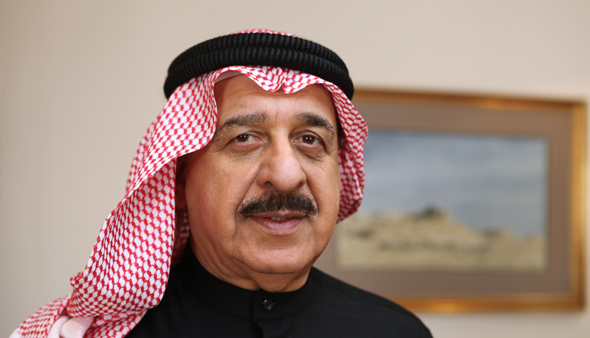
The uncertainty has put the brakes on consumer confidence and spending has consequently impacted investment in the country due to the financial crisis of 2008 and then the uprising in 2011. What is your perception of the business climate in Bahrain? What are your predictions and outlook for 2013?
2012 in Bahrain was productive. There were some areas in which business was a little bit down but the majority of the business picked up despite the problems. Business was good and I predict that business for 2013 should be more encouraging. We see that the economies of Europe and the United States are recovering so we hope that we will move forward with that situation. We are looking forward to a brighter future in Bahrain in 2013.
As one of the leading conglomerates in Bahrain and in the Middle East, anything that happens in Bahrain impacts your business activity. How has 2013 evolved to date? Do you feel there is a pickup in business activities of the Group?
We have seen the first two months of the year as encouraging and even though in January business is normally down we have seen encouraging results. So I personally believe we are on the right track and that we will have a good year in 2013.
We have seen quite a few companies coming and registering in Bahrain even last year.
Do you feel there is more interest from international companies?
We have seen quite a few companies coming and registering in Bahrain even last year. I presume you already checked with the Ministry of Trade and Commerce and they gave you the number of companies that came last year and how many they predict will come this year.
Business-wise, I see more businesses coming.
Regarding real estate, I notice that more houses are rented now which indicates more people are coming to work in Bahrain. Also, bearing in mind the causeway we have between Bahrain and Saudi, quite a few people from Saudi live in Bahrain in certain areas and the country have managed to keep them here. So real estate in Bahrain will hopefully become good business. Moreover, there’s also not a lot of restrictions on the GCC people to buy properties and have their own businesses set up here in Bahrain.
As one of the leading conglomerates in Bahrain, how do you characterize your strategy over the next two years in Bahrain and regionally?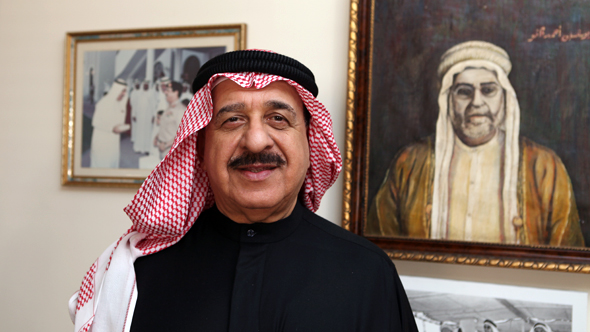
Every year we have a strategic meeting and we see where we will be in the coming few years. We had our meeting recently and we reckon that we will invest in industries related to our activities. We already have quite a few joint ventures in the area. We would like to increase these activities because we believe that there is a future for industrial projects. Also, the governments in the Gulf area are encouraging local companies to go into the industrial field.
We also see IT sector as very potential as many companies are now switching to IT. So we are in that field and we have a company called K-Soft. The company who makes the software is Gemini and it is in India and we have branches to sell their product in the Gulf. We see that there’s a future for it.
We are also present in the tourism and leisure sector and we will further continue to focus on our travel activities in 2013. I see these three lines related to our business increasing strongly in 2013.
With the advent of globalization the markets in the GCC are slowly opening up, if not opened up, to the international companies and aggressive expanders. How do you see the future of the family business in the GCC, especially in Bahrain? Is there still a place for it?
That’s a difficult question to answer because we are a family business and we have been approached even by some members of the family to go IPO or sell part of the company. I think even though I am the Board Director and I am saying let’s continue with the family business, eventually the future will come where it will be a little bit difficult to survive. My sons are the fifth generation now and they are in the business. I see that for their children it will be difficult because you have to have partners who really assist you in the business. You cannot run it with family only in the future.
Some family companies bring in outsiders to be on the board but that’s not enough. You also have to sell part of the company, first of all to gain experience and to find your company on the stock exchange which will make the company big outside the Gulf area. I think the future for big companies like us and others is to sell part of the company. 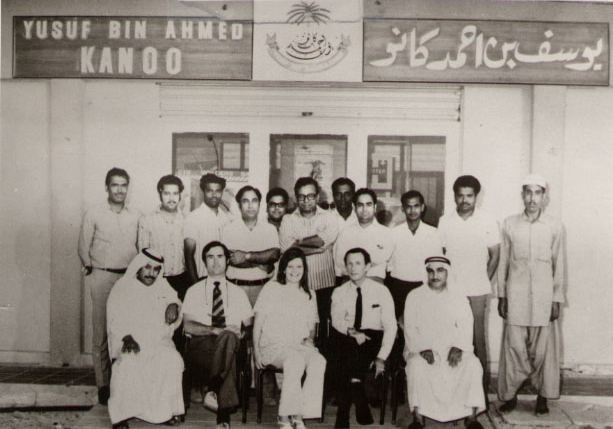 There are already some families in the Gulf who went IPO and they have made this transition successfully and smoothly. The majority of the shares stayed with the family and the balance goes to the public.
There are already some families in the Gulf who went IPO and they have made this transition successfully and smoothly. The majority of the shares stayed with the family and the balance goes to the public.
What do you feel are the key success factors for the family business to not only survive but do well and thrive and become a globalized player in the international scene?
Honesty in dealing with people and financing are very important. One reason why families go public – as I understand it – is that they have some problems with liquidity, which we don’t have. They may also have quarrelling amongst the family, which we don’t have. Yet the future tells you different scenario. Even if we don’t have these problems, we see that the future will not allow us to continue this way. That’s why companies go public even though the senior members of the family don’t see it that way but the future will force us to go that way.
How do you see things 10 years from now?
I cannot predict but what I’m saying is after a few years, we will see. It’s not for me to decide; it’s for the members of the family. We have a family, a board, and a family council, and we have to check with them. But I think to be on the safe side after a few years, we will have to think about that whether we like it or not.
There are many family companies who kept their names on the business, and they stay on the board. For example, with Rockefeller, you still have the Rockefeller company but it’s not owned 100% by the Rockefeller family. They own part of the company but because they built the company they’re still on the board. They cannot just put anybody on the board. They have to be one of the smart family members to be on the board.
They will be forced to do that. I cannot just put my son or my brother on the board because he’s my brother because there will be outside shareholders and they will question whether or not he should be on the board. So I have to make sure I pick the right people from my side to put on the board just as they will pick the right people for the other side. Then it will be successful.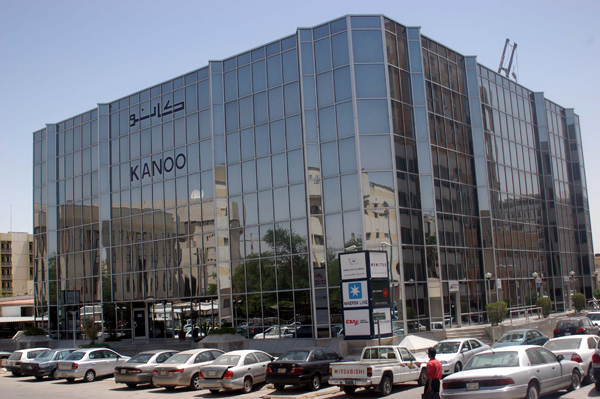
You will be traveling to Japan next week. What are you going to tell the Japanese about Bahrain?
I will tell them that Bahrain is safe for them to come and do business. There is a lot of attraction by the government in Bahrain for investors. There is a Japanese school, Japanese banks, and Japanese restaurants which is very important for people from Japan who are coming to Bahrain. The main thing is that there is an opportunity in Bahrain that they may not find elsewhere in the Gulf. Bahrain is closer to Saudi Arabia and Kuwait and the advantage we have is the bridge between Bahrain and Saudi Arabia where they can go in the morning and return in the afternoon.
I am mentioning Bahrain, Saudi Arabia and Kuwait because there is a lot of work there – a lot of oil, activities, and financial institutions they can deal with and they can use Bahrain as a base. For some of the Japanese, many years ago they used to have their activities in Bahrain. In the 1980s they had quite a few investment banks here and they used Bahrain as a hub. Later on, because of the global financial situation they moved from the Gulf and went back to Japan or to England or other areas where they saw a lot of activities for their business.
If the Japanese or any entrenched company wants to invest in Bahrain, one of the ways is to do a joint venture with a local partner. What are some of the advantages and disadvantages this model offers?
The disadvantage is if they open an office here with no partner, sometimes there are obstacles such as legal norms or customs which they don’t know about and those might stop their growth.
The law here says you can work with a local partner but there are some activities for which you don’t need a local partner. The Ministry of Trade and Commerce has a big area close to the seaport where they have a lot of factories for which international companies do not need to have a partner, just like Jebel Ali in Dubai. For other activities where they require a partner, the advantage is that the partner can open doors for them. He can put up in 50% of the capital. They do the management but he will make the investment. He will open doors for them and tell them what they need from the Ministries and they will deal with the Ministries. The disadvantage is if they open an office here with no partner, sometimes there are obstacles such as legal norms or customs which they don’t know about and those might stop their growth.
What do you see as the largest investment opportunities in Bahrain right now? Where do investors make a lot of money in Bahrain?
The aluminum business is doing well here because of Alba. Alba is a very successful project and has one of the largest aluminum factories in the world. There are also many small business related to aluminum so we sell a lot of aluminum to these factories. Plus the majority of the aluminum is exported out of Bahrain. The aluminum business is booming – it’s good business here. The government is now trying not to rely on oil alone and so they are trying to find other industrial activities. This is why they are encouraging investors to come to Bahrain. They are making it much easier for them to come and thus Bahrain is more capable of competing with the Gulf area.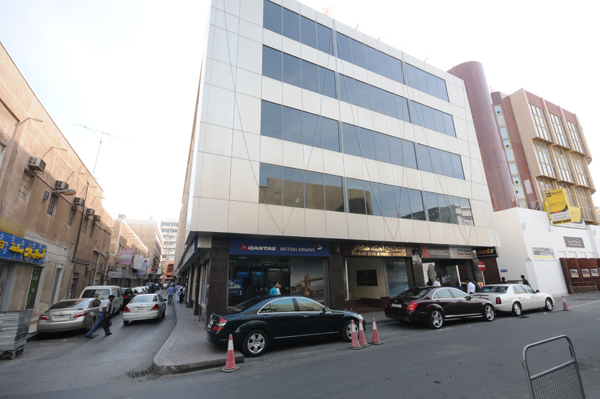
I don’t think we did very well in tourism in the past but I think in 2013, the government is putting tourism on the table to try to build up some parts of the island, including beaches, and build more hotels along the coast. Hopefully we will see a good growth in this sector. We also have Formula 1 here which happens on a yearly basis which attracts many visitors. There are also other car races such as BMW who use the track throughout the year so the BIC (Bahrain International Circuit) is also attracting people.
In general, all businesses are doing well. I cannot say which sector is better or has more potential than another, but the sectors I mentioned are the ones the government is concentrating on at the moment.
How big is the group in terms of employees?
We have about 6,000 people working for us Gulf-wide and about 700 people in Bahrain.
What are your growth predictions for the group for 2013-2014?
I don’t have a prediction but I would guess 10%.